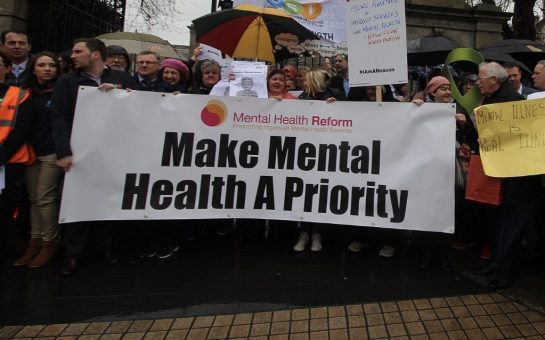In the heart of London, women grapple with their mental health issues silently.
According to data from the Office for National Statistics (ONS), mental health disorders are prevalent among women in London.
In 2021, approximately 25% of women reported experiencing symptoms of depression or anxiety, highlighting the significant burden of mental health issues on women’s well-being.
Farrah Ashley, 18, is an make-up artist who works throughout London.
She said: “Living in London can feel like constantly running a marathon, and sometimes, it’s okay to admit that you’re exhausted mentally, not just physically.”
Farrah spoke about how working in the city as well as growing up in such a complex environment can take a toll on women’s mental health.
She said: “The pressure to succeed in London’s competitive environment can take a toll on our mental health.
“But vulnerability is not weakness, it’s a courageous step towards healing and resilience.”
Social media also plays a huge role on the effect of women’s mental health in London.
Farrah said: “In the age of social media, it’s easy to get caught up in the highlight reels of others’ lives, but remember, behind every filtered photo lies a human story, including struggles with mental health that we may not see.”
“Social media can be a double-edged sword for women’s mental health, offering connection and community but also fostering comparison and self-doubt. It’s essential to cultivate a healthy relationship with technology and prioritise real-life connections.”
Research indicates that women are more likely than men to be diagnosed with common mental health disorders such as depression and anxiety.
Data from healthcare providers and mental health organisations reveal disparities in diagnosis rates, with women often seeking help for mental health concerns at higher rates than men.
Women in London face a multitude of stressors that can impact their mental well-being.
Data from surveys and studies highlight factors such as caregiving responsibilities, work-life balance challenges, financial pressures, discrimination, and gender-based violence as significant stressors affecting women’s mental health.
While there are numerous mental health support services available in London, data suggests that women may face barriers to accessing care.
Factors such as long wait times, limited availability of specialised services, and stigma surrounding mental health can hinder women’s ability to seek timely and appropriate support for their mental health needs.
Addressing these challenges requires a multifaceted approach that addresses systemic barriers, promotes gender-sensitive and culturally competent care, and fosters supportive and inclusive environments for women to thrive mentally and emotionally.
By leveraging data-driven insights and taking targeted action, we can work towards ensuring that all women in London have access to the mental health support and resources they need to lead healthy and fulfilling lives.
Photo by bady abbas on Unsplash





Join the discussion